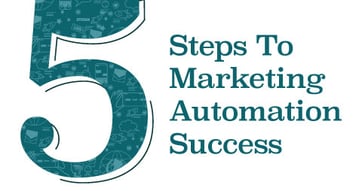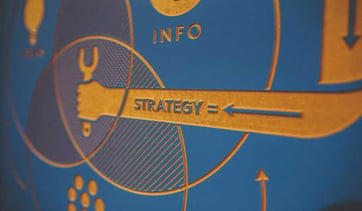For those not familiar with marketing automation, this is a method of using software (and tactics) to help businesses nurture their prospects with personalized content over a period of time, thus increasing the chances of turning targeted prospects into loyal customers. Instead of blasting prospects with unwanted sales messages (that they just end up unsubscribing from), they receive relevant information and have a chance to absorb the benefits of a product/service at their speed, creating a mutually beneficial relationship in the process.
The Benefits of Marketing Automation
At best, marketing automation can generate new revenue streams for companies and provide many returns on the marketing dollars invested in this platform. At worst, if no one truly knows how to ‘feed the machine’ with content and workflows and utilize this technology to its fullest potential, it often becomes an investment that sits forgotten on the shelf.
Marketing automation software (like HubSpot, Marketo, Pardot, etc.) has traditionally been used by larger enterprise companies to great benefit, providing a consistent stream of pre-qualified leads that are ‘warm leads’ by the time they reach their salespeople. Because of the method of ‘dripping’ information to prospects over time, giving them time to learn about new concepts and advantages of your products through education, it can be a very efficient method of taking away some of the time-consuming tasks of educating a prospect about your services. As such, it has typically been considered to be a ‘nice to have’ tool if you have big budgets and someone to manage it in-house.
However, like all technology, there have been significant advancements in the last few years, and the cost of implementing a marketing automation solution has decreased immensely. Now, it is quite manageable for even small local businesses to have an ongoing lead generation tool that makes the most of their precious time with prospects, while educating them along the way. If you have looked at marketing automation as a possible solution for your lead generation problems in the past, but have been scared away by the costs, it may now be a very viable option for your business.
So if you are at the point of trying to decide if marketing automation software is a tool you want to add to your lead generation strategy, here are some things to be aware of so it becomes a profitable investment in your business.
Don’t Repeat Other Companies’ Failures
One of the downfalls to the implementation of this type of platform is that sometimes companies tend to think of it as being ‘fully automated’—requiring the software to do all the work for them. While this is true to a large extent, the problem with this, as with any marketing campaign, is that if you aren’t measuring and testing your campaign’s results, you will not get proper information as to what is working or not working. Testing your content, seeing who is interacting with your campaign workflows, adjusting the content or message, and consistent monitoring of the campaign is required to get the most out of your software investment.
Another marketing automation failure companies experience is that they implement the solution, only to have the one individual who knows the platform leave the company, and campaigns sit unattended months afterward. Even though marketing automation is software-driven, the process of actively engaging and nurturing your prospects is something that both the sales and marketing teams need to adopt, together. Yes, you may have one primary person setting up campaigns and workflows in your automation tool, but both the marketing and sales teams should be aware of what campaigns are running and why. This way if your marketing automation guy or gal leaves, your campaigns can still be maintained, and leads can keep coming in.
Hire an In-house Specialist or a Marketing Agency?
If you want to have an expert manage your campaigns in-house, make sure they are familiar with your particular marketing automation tool and all the nuances. While the concept of marketing automation is essentially the same across all the available platforms, each tool is different from the others, and each has its way of doing things. There is something to be said for years of experience, and you can avoid a lot of wasted time and energy by getting a marketing automation specialist to run your campaigns. If you don’t have in-house help to manage your marketing automation strategy, it is imperative that you have an agency manage this for you on an ongoing basis so that you can get the most out of your investment.
Both an in-house expert and marketing agency can identify the proper ‘buyer personas’ or your specific target audience - what interests them, what motivates them and ultimately what messages will make them buy from you. So make sure you hire a marketing automation agency or specialist that asks the right questions. If they don’t ask questions about your target market, or whether you have someone on hand to manage the campaign, that should be a concern.
When initially determining which way you should go – in-house specialist or marketing agency it ultimately comes down to what you can afford while still making the investment in the tool profitable. A good company or resource will ask a lot of questions about your industry and your needs before offering any advice, platform recommendations or building out campaigns. At the end of the day, you need to be comfortable with the choice you’ve made.
Conclusion
A lead generation solution should evolve as your company evolves. If your salespeople are struggling to prequalify many leads and are taking too much time to get them through the buying cycle, marketing automation may be the tool you need to enhance your lead generation activities. A well-managed and rightly implemented marketing automation strategy can provide your business with a steady flow of pre-qualified leads and help consistently grow your business.
If you wish to discuss how marketing automation can enhance your existing lead generation strategy, book a consultation with a WSI Digital Marketing Consultant today.






